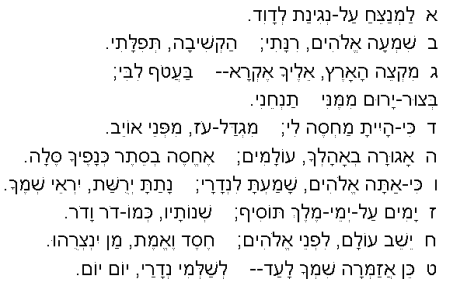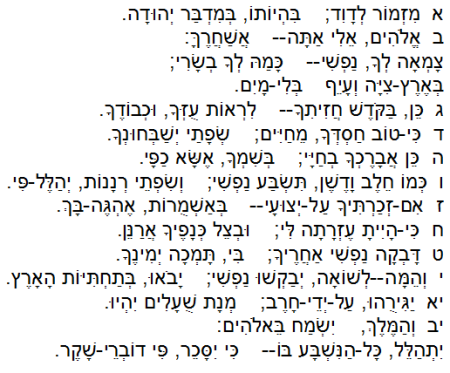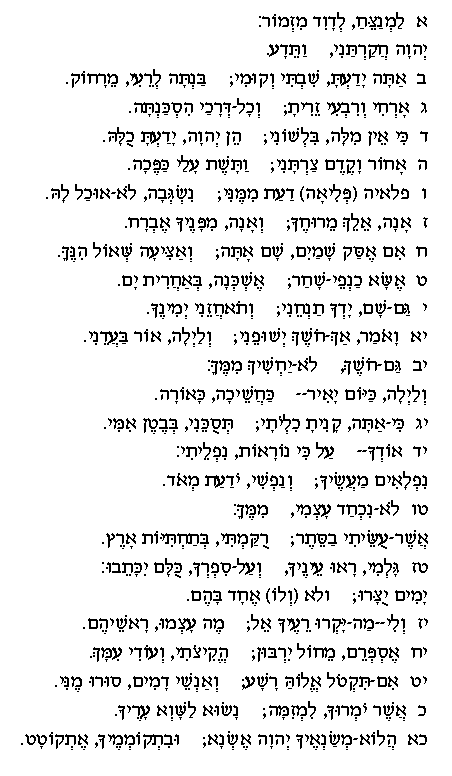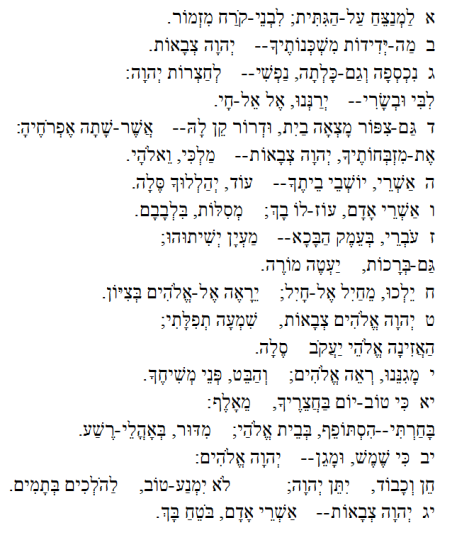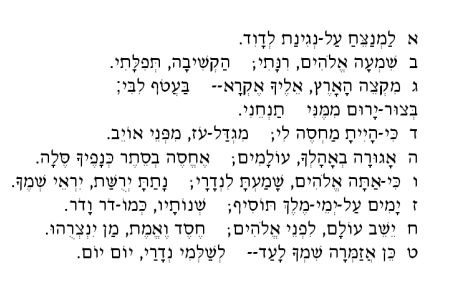Psalm 61
To the choirmaster: with stringed instruments, for David.
Hear my cry, O Creator,
listen to my prayer;
2 from the end of the earth I call to you
when my heart is faint.
Lead me to the rock
that is higher than I.
3 For you have been my refuge,
a strong tower against the enemy.
4 Let me dwell in your tent forever!
Let me take refuge under the shelter of your wings! Selah
5 For you, O Creator, have heard my vows;
you have given me the heritage of those who fear your name.
6 Prolong the life of the king;
may his years endure to all generations!
7 May he be enthroned forever before the Creator.
Appoint steadfast love and faithfulness to watch over him!
8 So will I ever sing praises to your name,
as I perform my vows day after day.
The struggle is on the unity. Everything that a person feels comes from the Creator (i.e. the quality of love and bestowal), however in concealment, in the opposite of what one thinks is good and benevolent.
We perceive the opposite of good and benevolence because we receive from the Creator in our vessels of correction. In other words, we are shown what we need to correct.
We get bad feelings until we unite everything to a single source, where all the discernments that are considered as bad, the enemies, the haters, the “end of the earth,” (i.e. the “end of the desire,” where the Hebrew word Aretz [“earth”] extends from the same linguistic root as the word Ratzon [“desire”]) that are uncorrected, that he will try from there to cry out to the Creator, i.e. from being in the “end of th earth,” to try and unite, to connect to “There is none else besides Him” (i.e. to the attainment of the single force of bestowal and love that exists in reality), until the person reaches full adhesion with the Creator. As such, one in always in preparation toward the next state, and this continues until the end of correction.
If one thinks about the present and prepares oneself for the future, then the person is in a prayer, a request and in praise toward the Creator, i.e. one raises one’s relationship and expectations to adhesion with the Creator, and succeeds.
In the beginning of the path, it appears as if there are enemies and haters, and that the person needs to act in some way against them. Truly, there are states where a person needs to go out to war. Afterwards, when a person connects everything a little more to the Creator, then the enemies and haters disappear, and there exists only the Creator, who does everything out of Panim (anterior) and Achoraim (posterior), so that the person can come to differentiate between the force of bestowal from above and the force of reception from below.
When the enemy surfaces, it appears as if the Creator becomes distant and disappears, and when the person connects to that picture, he reaches a state where there is no difference between light and darkness, where his own mood plays no influence over him anymore, and he no longer relates to his own powers, but connects everything to the Creator, the single quality of love and bestowal, and the person comes to see how he was always in a corrected and balanced state, and was never outside holiness.
The difference between now and before, however, is that now the person attained that picture.
Based on the Daily Kabbalah Lesson on May 19, 2014, available in the Kabbalah Media Archive.
How can one enter this process of self-transformation to reveal the force of love and bestowal acting perfectly in every state in the fastest way possible? This question and more are dealt with in the Free Kabbalah Course, which provides the fundamental principles and tools by which to correctly approach the wisdom of Kabbalah. It is recommended to take the Free Kabbalah Course before approaching the Daily Kabbalah Lessons with Dr. Michael Laitman. Click the banner below to sign up…
